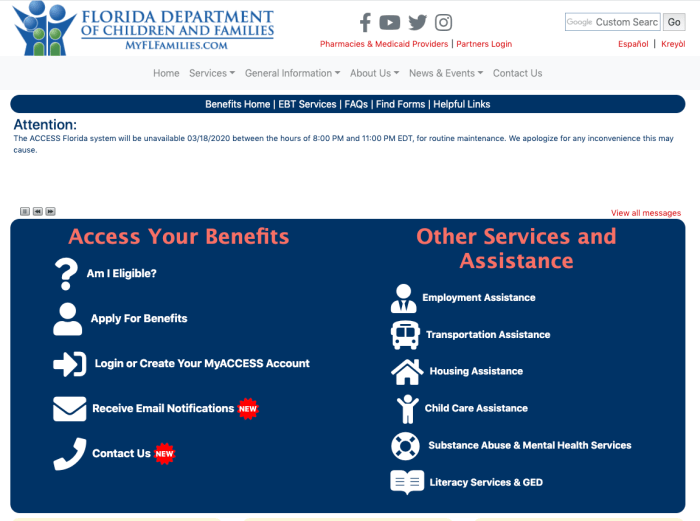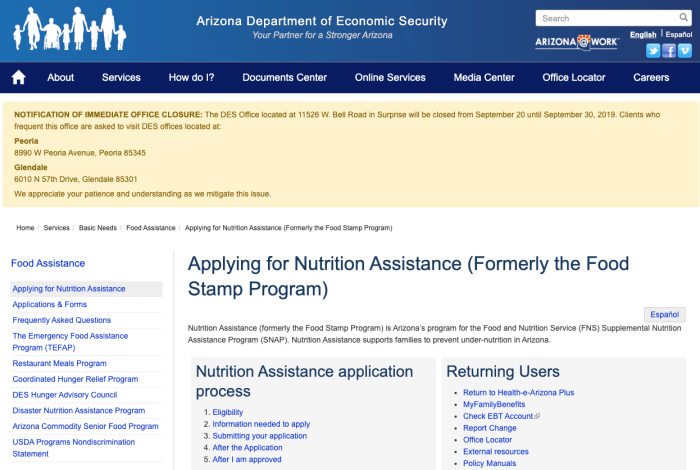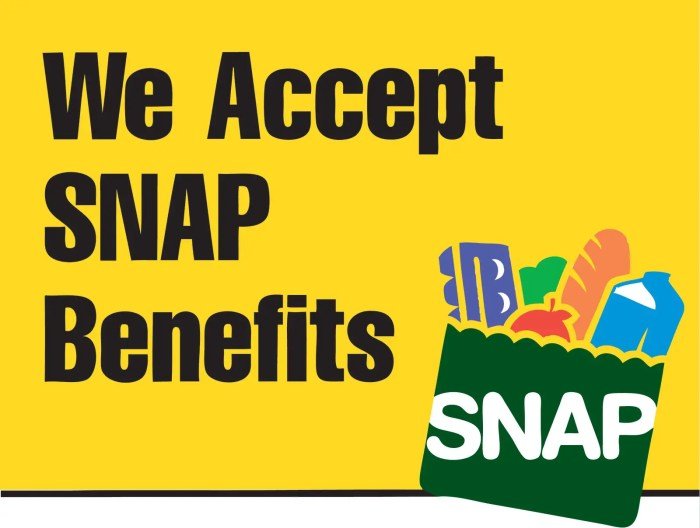Navigating the complexities of food assistance programs can be daunting, especially when you’re considering applying as a sponsor. This comprehensive guide will shed light on the eligibility criteria, responsibilities, application process, and benefits associated with sponsoring an individual for food stamps.
Whether you’re a potential sponsor or an individual seeking assistance, this guide will empower you with the knowledge and resources you need to make informed decisions.
As we delve into the topic, remember that food stamps, also known as the Supplemental Nutrition Assistance Program (SNAP), play a crucial role in alleviating food insecurity and promoting nutritional well-being. Understanding the nuances of sponsorship can ensure a smooth and successful application process.
Eligibility Criteria

To be eligible for food stamps, you must meet certain criteria. These include:
Being a U.S. citizen or a legal resident.
Having a low income and limited assets.
Income Limits
Your income must be below a certain level to qualify for food stamps. The income limit varies depending on your household size and where you live.
For example, in 2023, the gross income limit for a household of one person in the contiguous United States is $1,682 per month.
Asset Limits
You must also have limited assets to qualify for food stamps. The asset limit varies depending on your household size and whether you are elderly or disabled.
For example, in 2023, the asset limit for a household of one person who is not elderly or disabled is $2,500.
Sponsor Responsibilities
Sponsors play a crucial role in assisting individuals in applying for food stamps. They are responsible for providing necessary information, support, and guidance throughout the application process.
Information Provision
Sponsors must provide accurate and complete information about the individual they are sponsoring, including their income, household size, and other relevant details. They must also furnish any documentation required to verify the applicant’s eligibility.
Application Assistance
Sponsors can assist individuals in completing the food stamp application form, ensuring that all sections are filled out correctly and all necessary information is included. They can also provide guidance on gathering and submitting supporting documentation.
Interview Preparation
If an interview is required as part of the application process, sponsors can help the individual prepare by reviewing the interview questions and providing guidance on how to answer them effectively.
Follow-Up and Monitoring
Sponsors should follow up with the individual after the application is submitted to ensure that the process is progressing smoothly. They can also monitor the individual’s food stamp benefits to ensure that they are being used appropriately.
Application Process
Applying for food stamps as a sponsor involves several steps. Understanding these steps and following the instructions carefully can help ensure a smooth application process.
Completing the Application Form
The first step is to obtain an application form, which can be found online or at local social service agencies. The form requires personal information about the sponsor, including their income, assets, and household size. It is important to provide accurate and complete information to determine eligibility.
Submitting Required Documents
Along with the completed application form, sponsors must submit supporting documents to verify their information. These documents may include proof of income, such as pay stubs or bank statements, and proof of identity, such as a driver’s license or passport.
Verification and Approval
Once the application is submitted, the local food stamp office will verify the information provided. This may involve contacting the applicant for additional documentation or verifying the applicant’s income and assets with other agencies.
The food stamp office will use the following criteria to approve or deny an application:
Income and Assets
- The applicant’s income must be below a certain level.
- The applicant’s assets must be below a certain level.
Other Factors
- The applicant must be a U.S. citizen or legal resident.
- The applicant must not be disqualified due to a drug-related felony conviction.
- The applicant must meet certain work requirements.
Benefits and Limitations

Receiving food stamps can provide significant benefits to eligible individuals and families. One of the primary benefits is the ability to purchase nutritious food items that may not be affordable otherwise. Food stamps allow recipients to supplement their food budget and ensure access to a balanced diet, which can improve overall health and well-being.
Limitations
While food stamps offer numerous advantages, there are certain limitations and restrictions associated with their usage. One limitation is that food stamps can only be used to purchase eligible food items at authorized retailers. This means that certain non-food items, such as alcohol, tobacco, and pet food, cannot be purchased using food stamps.
Additionally, food stamps are not redeemable for cash. They are solely intended to be used for the purchase of food items, and any attempt to exchange them for cash may result in penalties.
It is important for recipients to be aware of these limitations and use their food stamps responsibly to maximize their benefits.
Resources and Support

Accessing assistance in applying for food stamps is crucial. Local food stamp agencies offer guidance and support throughout the application process.
Contacting these agencies is essential for individuals seeking assistance. They provide comprehensive information, clarify eligibility criteria, and guide applicants through the application steps. Additionally, they offer resources and referrals to other programs that may provide additional support.
Local Food Stamp Agencies
Locate the nearest food stamp agency by visiting the official website of the Supplemental Nutrition Assistance Program (SNAP) or contacting your local social services department. These agencies are dedicated to assisting individuals in applying for food stamps and accessing other essential resources.
Last Word
In conclusion, the ability for a sponsor to apply for food stamps is a valuable tool in the fight against hunger. By fulfilling the eligibility criteria, understanding the responsibilities involved, and following the application process meticulously, sponsors can make a significant difference in the lives of those they support.
Remember, accessing food assistance programs should not be a source of shame or stigma. Instead, it should be viewed as a lifeline that provides individuals and families with the nourishment they need to thrive.
FAQ Corner
Can a sponsor apply for food stamps on behalf of a minor?
Yes, a sponsor can apply for food stamps on behalf of a minor child if they are the legal guardian or have written authorization from the child’s parents.
What documents are required to prove sponsorship?
Documents such as a birth certificate, adoption papers, or a court order establishing guardianship may be required to verify the sponsor-dependent relationship.
Can a sponsor receive food stamps for themselves if they are also sponsoring someone else?
No, a sponsor cannot receive food stamps for themselves if they are sponsoring someone else. The benefits are intended solely for the sponsored individual.
What are the income and asset limits for food stamp eligibility?
Income and asset limits vary depending on household size and composition. Check with your local food stamp agency for specific eligibility requirements.
How long does it typically take to get approved for food stamps?
The approval process can vary depending on the workload of the local food stamp agency. In general, it can take anywhere from a few days to several weeks.